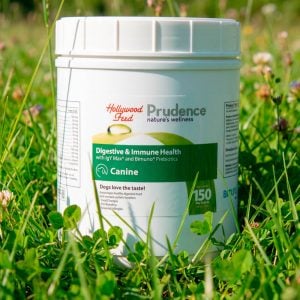Watching your beloved dog grow older can be emotional—especially when you’re unsure how to best support their changing needs. Senior dogs require a different approach to diet, exercise, and overall care to keep them comfortable, healthy, and happy in their golden years. At Hollywood Feed, we’re here to guide you with senior dog care tips, trusted supplements, and nutrient-rich foods that can make a big difference.
When Is a Dog Considered a Senior?
While breed and size play a role, most dogs are considered senior around age 7. Large breeds may reach senior status closer to age 5, while smaller breeds can remain sprightly until 9 or 10. Signs your dog is entering their senior years include:
-
Slowing down during walks
-
Graying muzzle
-
Increased sleeping
-
Stiffness or trouble getting up
-
Changes in appetite or weight
Key Challenges for Senior Dogs
As dogs age, they may face:
-
Joint stiffness and arthritis
-
Digestive changes
-
Weakened immune system
-
Dental issues
-
Cognitive decline
Understanding these challenges is the first step in helping your senior dog thrive.
The Role of Nutrition in Senior Dog Care
Senior dogs benefit from food that’s:
-
Rich in high-quality protein for maintaining muscle mass
-
Lower in fat to help manage weight
-
Enhanced with omega-3 fatty acids to support brain and joint health
-
Easy to digest for sensitive stomachs
Hollywood Feed’s Senior Dog Food Picks:
-
Fromm Gold Senior Dog Food – Complete and balanced nutrition.
-
Orijen Senior – High-protein, biologically appropriate recipe.
-
NutriSource Senior Recipe – This formula is great for dogs over 7 years of age and has all of the calcium and vitamins he needs to keep his bones and joints strong
Supplements for Senior Dog Health

Even with the best diet, supplements can help fill gaps and support specific needs.
Top Hollywood Feed Picks:
-
Prudence Dog Supplement – Ultimate Hip & Joint High Potency supports connective tissue, cartilage, and synovial fluid maintenance using Glucosamine and Chondroitin Sulfate, enhanced with NEM™ to target issues related to arthritis and mobility.
-
Brilliant Dog & Cat Supplement – Salmon Oil – Omega fatty acids for skin, coat, increased energy, and brain health.
-
Diggin Your Dog Super Snouts Dog Supplement – Chill Out Calming Hemp Chews– CBD Functional Soft Chews.
-
Weruva Dog & Cat Supplement – Pumpkin Patch Up! – Pumpkin supplement is a great source of healthy soluble and insoluble fibers to help support your cat’s or dog’s digestive system.
Lifestyle Tips for Senior Dogs
Caring for an older dog isn’t just about food and supplements—it’s also about comfort, routine, and mental engagement.
-
Gentle exercise: Shorter, more frequent walks help maintain mobility without overexertion.
-
Regular vet visits: Twice-yearly checkups catch health issues early.
-
Comfortable bedding: Orthopedic beds ease joint pressure.
-
Mental stimulation: Puzzle toys, training refreshers, and new scents keep their minds sharp.
When to Seek Professional Advice
If your senior dog shows signs of pain, rapid weight loss, or sudden behavioral changes, consult your vet right away. Many age-related conditions are manageable with early intervention.
Recap: Senior Dog Care Essentials
-
Choose high-quality senior dog food with joint and brain support.
-
Add targeted supplements for mobility, skin, coat, and overall health.
-
Maintain gentle, consistent exercise.
-
Schedule regular vet checkups.
-
Keep your dog mentally engaged.
FAQs
Q: How often should I take my senior dog to the vet?
A: At least twice a year for a wellness check, plus any time you notice sudden changes in behavior or health.
Q: What is the best joint supplement for older dogs?
A: Products with glucosamine, chondroitin, and omega-3 fatty acids are most effective, such as Ark Naturals Joint Rescue.
Q: Can I still teach my senior dog new tricks?
A: Absolutely! Training sessions keep their mind active and strengthen your bond.
Q: Should I change my senior dog’s diet gradually?
A: Yes—transition slowly over 7–10 days to prevent digestive upset.
Final Thought:
You don’t have to feel helpless as your dog ages. With the right senior dog care tips, high-quality nutrition, and targeted supplements, you can help your best friend stay active, happy, and healthy well into their golden years. Visit your local Hollywood Feed store or shop online to find the best products for your senior dog, and be sure to check out our blog for more expert tips and advice.










